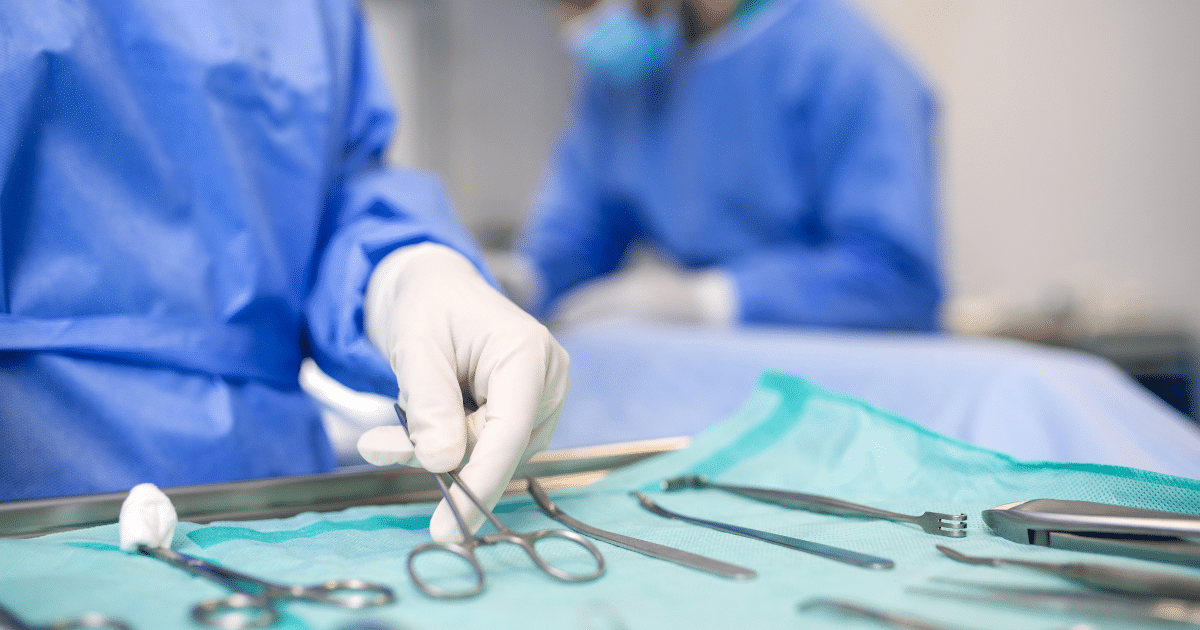Did you know that improving your gut health can improve your overall wellbeing?
The term ‘gut health’ refers to the function and balance of bacteria located in the gastrointestinal tract (including the esophagus, stomach, and intestines). A healthy gut can help influence a stronger immune system and improve your heart, brain, and digestive health. Fortunately, there are many factors that you can control to help enhance the health of your gut, including eating the correct types of food. With over 37 million office visits in the U.S. each year due to digestive issues, it is critical to be proactive in managing our gut health and understanding its relation to our overall wellbeing.
Why Gut Health is Important
Your gut contains millions of bacteria, viruses, and fungi that form a microbiome. In addition, millions of naturally occurring bacteria live within the gut microbiome. These bacteria play a significant part in keeping us healthy by helping the digestive processes and playing a role in the immune system by acting as a natural barrier to disease. They also help form the essential vitamin K, which is crucial for blood clotting and bone metabolism, and vitamin B, a vital building block for healthy brain function and maintaining energy levels. Gut bacteria help combat other infections from more aggressive micro-organisms.
Foods to Improve Gut Health
There are several foods you can add to your diet to stay. Nutritious food choices effectively combat bad bacteria that attack the gut and help guard the good bacteria.
#1: Probiotic Food
There are many health benefits of taking probiotics, including improved gut health. Probiotics (from pro and biota, meaning “for life”) support naturally occurring bacteria levels in the microbiome as they contain live bacteria. The most commonly known food in this category is live yogurt, which is considered to be a fermented food. Some brands include “probiotic” on the label. Sauerkraut is another probiotic food source rich in fiber and nutrients. Finally, miso is probiotic-rich but should be consumed in moderation as it is high in sodium.
#2: Leafy Greens
Leafy greens include kale, cabbage, spinach, and salad. They are rich in fiber and contain vital vitamins and nutrients, including vitamin K, vitamin C, and folate. Leafy green food supports gut health by helping the digestive processes. These foods contain a type of sugar that supports the growth of healthy bacteria in the gut.
#3: Avocado
Avocados are a superfood that is full of nutrients, such as potassium and fiber. Both these promote a healthy gut. In fact, a recent study revealed that eating one avocado every day for twelve weeks had a positive effect on the diversity of the gut microbiome. However, portion sizes are essential as avocado is high in fat, so you should only eat it in moderation.
#4: Whole Grains
Whole-grain foods are also fiber-rich and contain beta-glucan, a non-digestible carbohydrate. Beta-glucan carbohydrates are not digested in the small intestine. Instead, they work their way to the large intestine, where they help form naturally occurring bacteria. Whole grains also help reduce inflammation, and they increase the feeling of fullness which can curb overeating. However, some can increase inflammation and reduce gut bacteria in people sensitive to gluten.
#5: Prebiotics
Prebiotics differ from probiotics as they are the food for the probiotic, so they can continue to function. Food that contains prebiotics includes those high in soluble fiber. Examples of prebiotic-rich food include nuts, fennel bulbs, onions, leeks, chicory root, ripe bananas, and Jerusalem artichokes.
#6: Chocolate
Some chocolate manufacturers make prebiotic and probiotic-rich chocolate bars that help improve gut health. However, they should be eaten in moderation and high sugar-containing chocolates should be avoided. Probiotic chocolate contains millions of naturally occurring bacteria and yacon root, which helps prebiotic fiber support and feed the bacteria cells.
#7: Garlic
Garlic is a super-food that is packed with health benefits. Raw garlic in a salad or added to a recipe benefits your gut and contains both antibacterial and anti-fungal properties, so it can keep bacteria in the gut healthy. In addition, inulin is a type of fiber that supplies fuel to good bacteria and is found in garlic.
#8: Kombucha
Kombucha is a fermented tea containing yeast, green or black tea, and sugar. The tea ferments, so it ends up tasting like vinegar but is very refreshing and contains high concentrations of antioxidants. Most importantly, it is rich in healthy bacteria to support your gut and promote the growth of beneficial microbes. The CDC states that four ounces of can be safely consumed per day.
#9: Oily Fish
Oily fish contains Omega 3 fatty acids, which boost health in several ways. Omega 3 is an anti-inflammatory to restore inflamed cells, promoting the growth of new and beneficial cells on the gut wall lining. A recent study found that people who eat foods rich in omega-3 fatty acids have more bacterial diversity in the gut. Examples of oily fish include salmon, mackerel, halibut, and anchovy.
And the Food to Avoid
Foods that negatively impact your gut health tend to be high in sugar, which causes inflammation of the gut lining. Artificial sweeteners can cause a change in the gut microbe population and also lead to glucose intolerance. Hyper processed foods lead to gut inflammation as they contain high sugar, trans-fats, additives, and low fiber levels. None of these types of food helps gut health.
Saturated fats are also bad for gut health. For example, diets rich in high-fat content meat or butter can decrease good bacteria in the gut. Likewise, high levels of dairy foods can change the constitution of your good gut bacteria and lead to increased inflammation.
Alcohol is known to cause an imbalance in healthy gut bacteria, particularly in those with high consumption levels. However, research shows it is dependent on the type of alcohol because moderate consumption of red wine is beneficial for gut health in moderation.
Looking For a Primary Care Doctor in Connecticut?
PACT Primary Care is Accepting New Patients!
Locations throughout Connecticut in Guilford, Hamden, Madison, Milford, New Haven, Orange, West Haven and Wallingford.
To schedule an appointment, request an appointment online here or call a local center near you.








